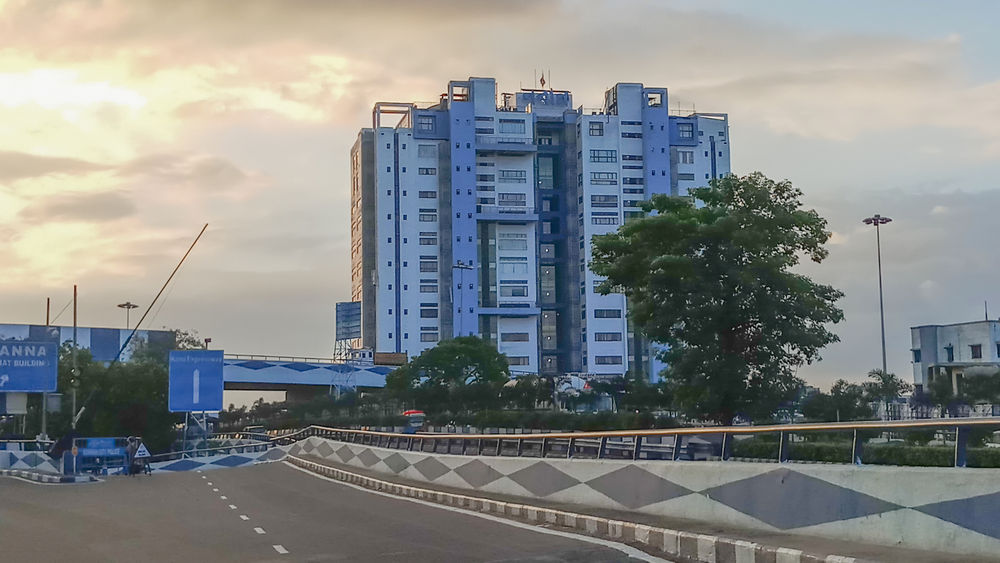The Supreme Court on Tuesday struck down the West Bengal Housing Industry Regulation Act, 2017, deeming it “unconstitutional” since it not only encroached on the domain of Parliament which had passed a central legislation but had also failed to provide sufficient safeguards to home buyers.
The central legislation — Real Estate (Regulation and Development) Act — was passed in 2016.
Justices D.Y. Chandrachud and M.R. Shah said there were two clear reasons why the state legislation should be set aside: first, the state government lacked the legislative competence to enact a state law that would override a central law on a concurrent subject and, second, it had failed to seek Presidential assent under Article 254 (2) of the Constitution.
Exercising its extraordinary powers under Article 142, the apex court ruled that the decision to strike down the state legislation “...will not affect the registrations, sanctions and permissions previously granted under the legislation prior to the date of this judgment.”
In its 190-page verdict, the court said a “significant and even overwhelmingly large part of WB-HIRA overlaps with the provisions of RERA. These provisions of the RERA have been lifted bodily, word for word and enacted into the State enactment.”
“In doing so, WB-HIRA does not complement the RERA by enacting provisions which may be regarded as in addition to or fortifying the rights, obligations and remedies created by the Central enactment,” said Justice Chandrachud who authored the judgment.
The verdict was handed down
on a writ petition filed jointly by Forum for People’s Collective Efforts (FPCE) and another organisation challenging the constitutional validity of the state legislation.
Citing inconsistencies of WB-HIRA with the Central legislation, the court pointed out that Section 71(1) of the RERA provides that the regulatory
authority shall appoint adjudicating officers for the purpose of adjudging compensation under Sections 12, 14, 18 and 19.
The adjudicating officer is required to be a person who is or has been a District Judge. However, WB-HIRA does not contain any provision for appointment of adjudicating officers for the purpose of adjudging compensation.
Rather, Justice Chandrachud noted that under Section 40(3) of WB-HIRA, this power is entrusted to the regulatory authority and not to a judicial person or body.
“The fact that an appeal against the orders of the regulatory authority lie to the Appellate Tribunal and thereafter to the High Court cannot gloss over the fact that the valuable safeguard of appointing judicial officers as adjudicating officers for determining compensation under the RERA has not been enacted in WBHIRA…” the bench said.
The court further noted that Section 80(2) of the RERA provides that no court inferior to a metropolitan magistrate or a judicial first class magistrate shall try an offence punishable under the Act. But no such provision is contained in WB-HIRA.
The State legislature, while enacting WB-HIRA, had replaced the Central Advisory Council, which has a major policy-making role, with the State Advisory Council. As a consequence, the advisory role of the Central government, based on the recommendations of the Central Advisory Council, has been completely eroded in the provisions of WB-HIRA.
“…the above analysis clearly demonstrates that in material respects, WB-HIRA has failed to incorporate valuable institutional safeguards and provisions intended to protect the interest of home-buyers,” the court said.
“The silence of the State legislature in critical areas... indicates that important safeguards which have been enacted by Parliament in the public interest have been omitted in the State enactment," the ruling said.
“There is, in other words, not only a direct conflict of certain provisions between the RERA and WB-HIRA but there is also a failure of the State legislature to incorporate statutory safeguards in WB-HIRA, which have been introduced in the RERA for protecting the interest of the purchasers of real estate. In failing to do so, the State legislature has transgressed the limitations on its power and has enacted a law which is repugnant to Parliamentary legislation on the same subject matter,” Justice Chandrachud noted.
The court further said that it is abundantly clear that the State of West Bengal would have had to seek the assent of the President before enacting WB-HIRA, where its specific repugnancy with respect to RERA and its reasons for enactment would have to be specified.
“Evidently, this was not done. However, since we have already held WB-HIRA to be repugnant to RERA, this issue becomes moot…For the above reasons, we have come to the conclusion that WB-HIRA is repugnant to the RERA, and is hence unconstitutional,” the Apex court said.











